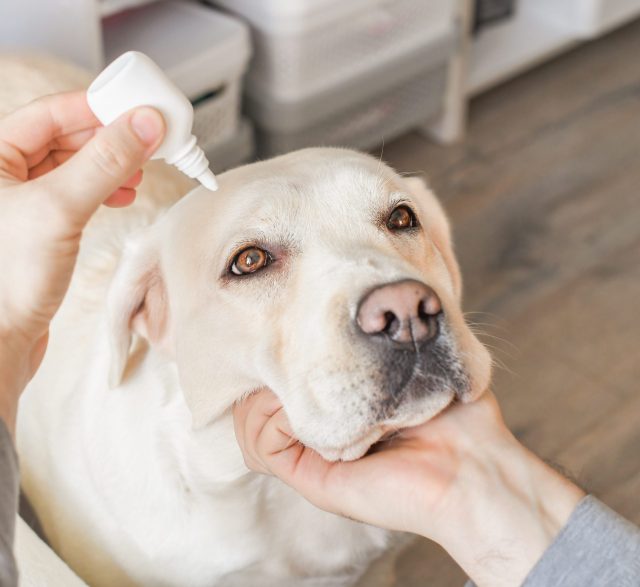Dog eye health is a crucial aspect of a dog’s overall well-being. Unfortunately, many dogs face a variety of eye problems throughout their lives. Being aware of these common eye conditions can help pet owners take prompt action, ensuring their dogs remain happy and healthy. This article explores some of the most prevalent eye issues in canines, aiming to educate owners about the symptoms, treatments, and preventive measures associated with each condition.
Types of Eye Conditions Affecting Dogs: A Detailed Overview
Conjunctivitis (Pink Eye)
Conjunctivitis, commonly known as pink eye, is an inflammation of the conjunctiva, the moist tissue that covers the front part of the eye and lines the inside of the eyelids. Dogs can contract conjunctivitis due to allergies, bacterial infections, viral infections, or even irritants like dust and wind. Typical symptoms of conjunctivitis in dogs include redness, swelling, and a noticeable discharge that may be clear or contain pus. Treating pink eye in dogs generally involves addressing the underlying cause: antibiotics for bacterial infections and antihistamines or steroids for allergies. Regular cleaning and keeping the eye area dry can help prevent the condition.
Check Out These Easy Ways To Keep Your Dog’s Eyes Healthy
Cataracts in Dogs
A cataract occurs when the lens of a dog’s eye becomes opaque, leading to a decrease in vision and, if untreated, can result in blindness. Cataracts can develop due to aging, diabetes, trauma, or inherited genetic defects. Canine cataracts are often noticeable as a cloudy or bluish-gray covering over the lens. Early detection through regular veterinary check-ups is crucial. Treatment options vary from medical management to control any underlying causes to surgical removal of the cataract to restore vision.
Glaucoma in Dogs
Glaucoma is a serious condition characterized by an increase in the pressure inside the eye, which can damage the optic nerve and lead to loss of vision and blindness. This condition can be either primary, hereditary in nature, or secondary to other eye diseases. Symptoms include redness in the eye, visible discomfort, and a cloudy appearance to the eye. Glaucoma treatment in dogs may involve medications to decrease eye pressure, surgery, or in severe cases, removal of the eye to alleviate pain.
Dry Eye Syndrome (Keratoconjunctivitis Sicca)
Dry eye syndrome, or keratoconjunctivitis sicca, occurs when a dog’s eyes do not produce enough tears to stay moist. This condition can lead to itchiness, redness, and a thick discharge. If left untreated, it can cause painful ulcers and scarring on the cornea. Treatment typically includes medications that stimulate tear production or substitute tears. Managing dry eye in dogs is often a lifelong process.
 Corneal Ulcers
Corneal Ulcers
Corneal ulcers are open sores on the cornea, the clear outer layer of the eye, often caused by trauma, infection, or lack of tear production. Symptoms of corneal ulcers in dogs include severe pain, squinting, redness, and sometimes a cloudy appearance. Treatment depends on the severity of the ulcer but may include antibiotic or antifungal medication, pain relief, and surgery in severe cases to promote healing and prevent vision loss.
Read Our Review of the Best Eye Supplements for Dogs
Preventive Measures and Regular Care
Maintaining your dog’s eye health involves regular veterinary exams, which can catch and address eye conditions before they become serious. Owners should regularly inspect their dog’s eyes for any signs of redness, discharge, or irritation. Keeping your dog’s face clean and trimming fur around the eyes can also help prevent eye problems.
Discover the Best Foods That Promote Eye Health for Dogs
Key Takeaways on Managing and Preventing Eye Problems in Dogs
Awareness and early intervention are key to managing eye health in dogs. Regular check-ups, prompt treatment of any symptoms, and maintaining good hygiene can help keep your dog’s eyes healthy. If you notice any signs of eye problems, it is essential to consult your veterinarian immediately. Protecting your dog’s eyes is a vital part of ensuring they lead a full and happy life.
